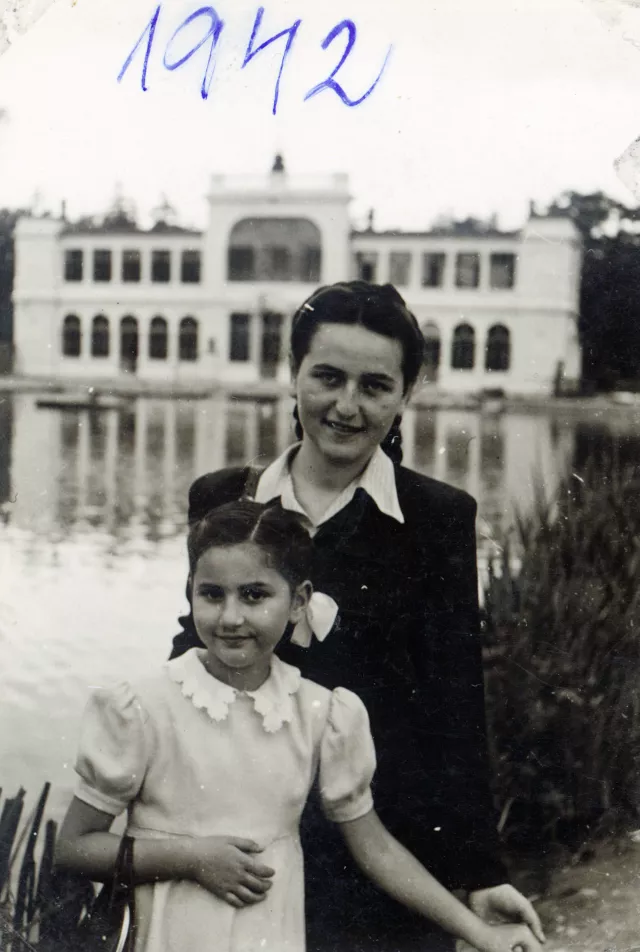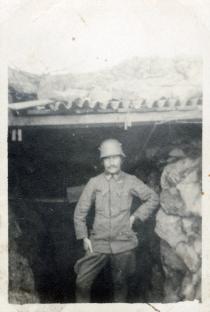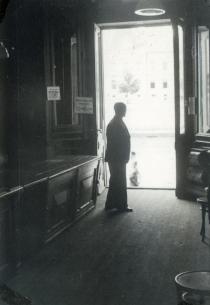This is a picture of my cousin Agi Herskovits, on the left, and me. It was taken in Kolozsvar in 1942.
We called the place where this photo was taken, Setater [Promenade] then [today Central Park]. We were going for a walk and Agi’s father, Lajos Herskovits, took a picture of us.
He had a camera and I know he used to take lots of pictures. My mother, Jolan Moskovits, nee Klein, and Agi's father were cousins, since their parents, my and Agi's grandmother were sisters.
Agi was a very pretty little girl, and very bright and skilled, as well. She was around eight or nine then and she didn't survived the deportation because she was too young.
They lived in Kolozsvar, where Lajos was a dentist. I spent a holiday with them , which I enjoyed very much because I really liked Kolozsvar.
They used to take me to a candy store to eat ice-cream or cookies, but there were also school balls or reunions we used to attend. We didn't really go to restaurants.
In 1940 I finished the 3rd grade of high school and I was preparing for the 4th grade. The first shock came when not everybody was allowed to attend school. There were many Jewish children here in MarosMarosvasarhely, but not everybody was accepted.
At the start of each year one had to register in the relevant class. After the year was closed it would be announced in which period of the next year one could enrol for the next year. In the Hungarian times, that is, in the period between 1940-1944, it wasn't that simple to register.
It was established that only 6% of the Jewish children were allowed to go to school, and those who could prove their parents had fought for the Hungarian army in World War I and were decorated, had priority.
Everybody submitted the requests, and those who had relevant documents attached them. Following an evaluation they selected 6% of them and rejected the rest.
So, based on a request, and by proving that my father fought in the war and was injured and decorated, I was instantly accepted to the school.
In 1940, everybody was happy that the Hungarians came in. My mother had never really managed to learn proper Romanian; she graduated from a Hungarian school.
This change was received with great joy. The first anti-Jewish laws in Romania were adopted in 1942 or 1943, and not right away; a series of disappointments came because though it was fine we had this [Hungarian authority once again], the other aspects weren't quite in our favor.
There were young fellows who, when coming across long-bearded elderly Jews, pulled their beards, made all kinds of remarks and generally made fun of them.
We couldn't travel so freely either, but people weren't travelling too much back then anyway.






























